Diabetes diet plan: Why is it important?
Healthy eating doesn’t have to mean going without! The diabetes diet plan is a low-carb nutrition program designed to help those who suffer from diabetes, type 2 diabetes, pre-diabetes, high blood sugar levels, obesity, heart disease, high cholesterol, and metabolic syndrome. If any of these conditions apply to you, then you need to make changes in your lifestyle today. The diabetes diet plan helps to lower your HbA1c, triglycerides, LDL, total cholesterol, glucose level, insulin sensitivity, and blood pressure. Here’s what you need to know about managing diabetes.
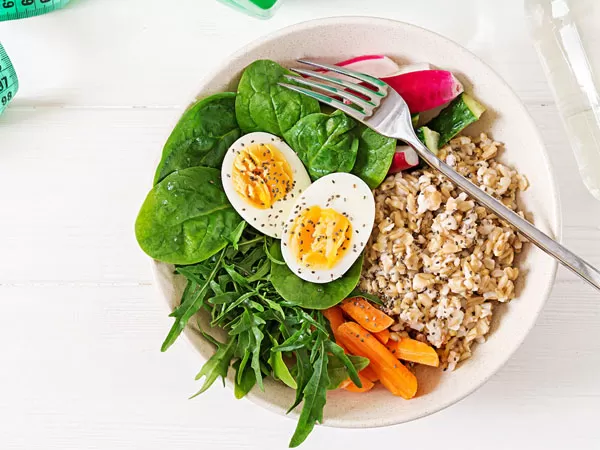
Diabetes is a dangerous condition that requires proper treatment and management. If left untreated, diabetes can lead to serious complications including heart disease, kidney failure, blindness, nerve damage, amputation, stroke, and death. A diet rich in whole grains, fruits, vegetables, beans, nuts, and legumes, along with regular exercise, can help manage high blood sugar levels.
Fact check: In 2017, about 425 million adults were estimated to have diabetes worldwide. Of those, approximately 80% had type 2 diabetes.
What Is Diabetes?
Diabetes is a chronic disease that occurs when the body does not produce enough insulin – a hormone that helps the body use glucose (the simple carbohydrate found in foods) for fuel. In people who have type 1 diabetes, the pancreas produces little or no insulin at all. People with type 2 diabetes may produce some insulin, but they do not make enough or their bodies cannot properly respond to insulin.
Symptoms of Diabetes
People often experience symptoms of diabetes without even realizing it, especially if they do not pay attention to their eating habits. Symptoms of diabetes include increased thirst and urination, blurred vision, fatigue, frequent infections, numbness or tingling in hands or feet, weight loss or gain, slow healing of wounds, and unexplained bruising or bleeding.
Causes of Diabetes
The cause of diabetes is unknown. However, many things contribute to the risk of developing diabetes, including obesity, physical inactivity, family history, race, ethnicity, age, and certain medical conditions.
Importance of a Balanced Diabetes Diet Plan for People with Diabetes
Diabetics need special diets and therapies to keep their blood sugar levels under control, which helps them live longer, healthier lives. There are a number of benefits to following a diabetes diet. Diabetics who follow a diet that includes enough carbohydrates, nutritional protein, and fiber often experience several improvements in their health. These benefits include better sugar control, reduced risk of heart disease, reduced risk of stroke, and a reduced risk of type 2 diabetes.
- A diabetes diet typically consists of moderate amounts of carbohydrates, protein, and fat.
- Carbohydrates are the most important type of food to include in a diabetes diet. They are essential for keeping your blood sugar levels stable.
- Protein is also important for keeping your blood sugar levels stable. Protein provides the energy needed to maintain healthy blood sugar levels.
- Fat is important for providing energy and essential fatty acids.
How to make your Balanced Diabetes Diet Plan?
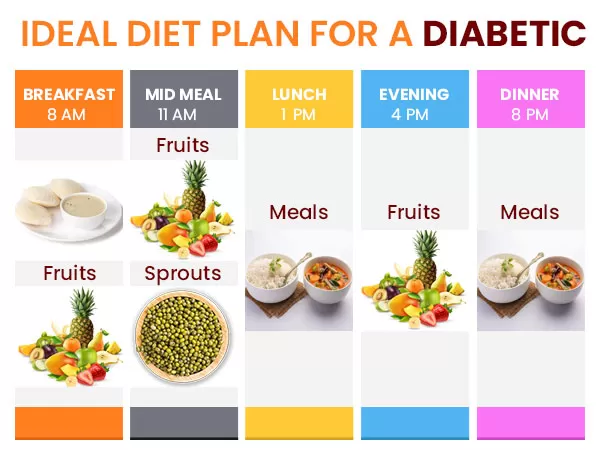
1. Eat More Fruits And Vegetables
Fruits and vegetables are loaded with vitamins and minerals that help keep your body healthy. These foods provide fiber, antioxidants, and phytonutrients that fight disease and promote good health. Eating fruits and veggies helps lower cholesterol levels, reduces the risk of heart disease, and may even reduce the risk of certain types of cancer.
The first step to eating well is to eat real food. Real food means natural food, which has no chemicals or radiation. These foods are full of vitamins, minerals, antioxidants, fiber, and phytonutrients. Eating whole foods helps keep your body running smoothly and gives you energy without making you feel sluggish.

2. Cut Back On Processed Foods
Avoiding processed foods means cutting out trans fats, refined sugar, and artificial ingredients. Instead, choose whole grains, lean protein, and fresh produce. Processed foods are often high in sugar and sodium and low in nutritional value. Instead, choose fresh fruits, vegetables, lean meats, fish, nuts, seeds, and legumes.

3. Drink More Water
Drinking plenty of water throughout the day keeps your blood flowing freely and prevents dehydration. Dehydration causes fatigue, headaches, dizziness, and muscle cramps. If you’re feeling thirsty, drink some water. You’ll feel refreshed and ready to take on the world!
Water is the best drink for your body. Drinking enough water each day is especially important if you exercise regularly. You should aim to drink half your weight in ounces (e.g., if you weigh 150 pounds, drink 75 ounces).

4. Get Enough Sleep
If you have diabetes, you know how important it is to control your blood sugar levels. Keeping them under control is difficult, though. To do this, eat smaller meals more frequently throughout the day. Also, avoid sugary snacks between meals.

5. Keep Your Blood Sugar Levels In Check
If you have diabetes, you know how important it is to control your blood sugar levels. Keeping them under control is difficult, though. To do this, eat smaller meals more frequently throughout the day. Also, avoid sugary snacks between meals.
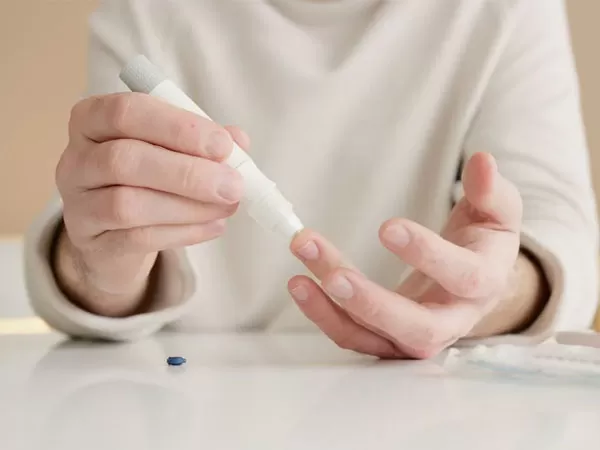
6. Exercise Regularly
Exercise boosts endorphins, the natural painkillers in your body. Endorphins improve mood and relieve stress. Plus, exercise increases your metabolic rate, helping burn calories and boost weight loss efforts. Exercise is a great way to boost your energy levels and burn calories. Try walking for 30 minutes several times a week. Or, if you prefer, try yoga or Pilates.

7. Don’t Skip Meals
Eating regular meals throughout the day keeps your metabolism running smoothly. Skipping meals slows down your metabolism and makes it easier to gain weight. Make sure to eat breakfast every morning. Breakfast jump-starts your metabolism and gives you the energy to start your day off right.
Keeping track of what you eat can help you identify patterns in your diet that could lead to health problems. Write down everything you eat and drink, including supplements and medications. Make note of how much time passes between meals and snacks. Also, record the size of portions and whether you are alone or with others.

8. Limit alcohol
Alcohol can cause dehydration and interfere with sleep. If you do consume alcohol, limit yourself to two drinks per day.

What are the Instant energy foods for diabetic patients?
There are many things you can do to improve your energy levels if you have diabetes and feel low in energy. By following these tips, you’ll be able to fight off tiredness and have the energy you need to get through the day.
Eat some Honey: Honey is a natural sweetener that comes from bees collecting nectar from flowers. It contains many vitamins and minerals, including B-complex vitamins, vitamin C, iron, zinc, copper, manganese, selenium, and antioxidants. Honey is a great way to get instant energy for diabetic people.

Have some Date sugar: Date sugar is similar to honey, except dates are dry and ground into a fine granular consistency. Dates are rich in fiber, protein, and minerals like magnesium, calcium, iron, and potassium.
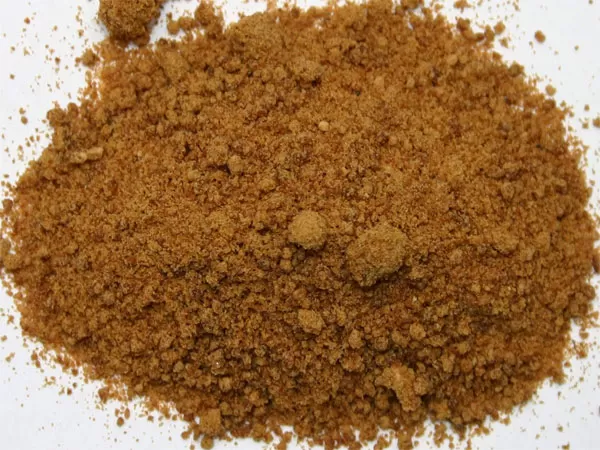
You can have Agave syrup: Agave syrup is made from the sap of the agave cactus. It’s sweeter than honey, but not quite as sweet as maple syrup. Agave syrup is high in fructose and low in glucose, making it a good alternative to table sugar.

A tablespoon of Maple syrup: Maple syrup is made by boiling down the sap of maple trees. It’s naturally sweetened and contains trace amounts of minerals like calcium, potassium, and sodium.

Molasses: Molasses is the thick liquid left over after sugar cane juice is processed. It’s full of minerals like calcium, iron, and phosphorus. Molasses is often used as a replacement for salt in cooking.

Coconut milk: Coconut milk is made from grating coconut meat and mixing it with water. It’s high in fat, but also contains lots of vitamins and minerals like calcium, iron, and potassium.
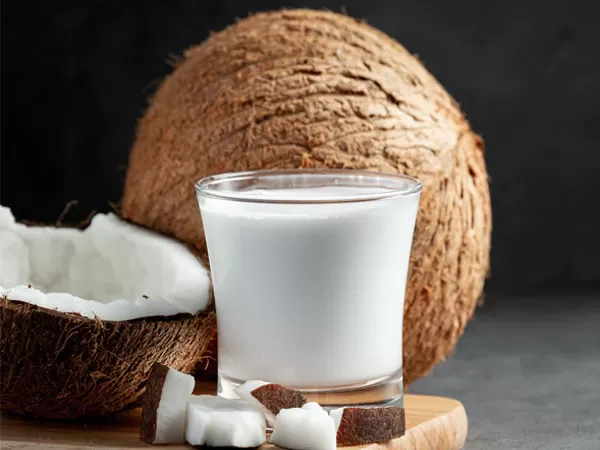
Home remedies for diabetic itchy skin
Diabetic itchy skin is an uncomfortable problem that many people with diabetes face. In fact, the diabetic itch can be so bad that some people are reluctant to leave their homes for any reason because of the itching. There are a number of home remedies for diabetics who have itchy skin. Some of these remedies work better than others, but they all deserve a try if you are having problems with your diabetes-induced itchiness.
Diabetic itchy skin can make everyday activities difficult and can be a frustrating condition to live with.
- Firstly, it is always important to drink plenty of fluids to stay hydrated. Dehydration can lead to a wide range of skin problems, including itchiness.
- Secondly, it is important to keep your skin well-moisturized. This means applying lotions and moisteners to your skin regularly. Moisture can help to suppress the formation of skin lesions and stop the itchiness from becoming too intense.
- Finally, it is important to take care of your diet. Nutrition is essential for maintaining a healthy skin condition.
Diabetics are generally more susceptible to skin problems due to the changes that occur in their bodies as a result of their diabetes. By following a healthy diet and eating foods that are rich in antioxidants, you can help to improve your skin condition and reduce the likelihood of developing diabetic itch.
Final sum up,
India has over 400 million people who suffer from diabetes. There are about 1.8 million diabetics each year in India. Diabetes causes damage to blood vessels and nerves, and if left untreated, may lead to blindness, kidney failure, heart disease, stroke, amputations, and death. In order to prevent complications, early detection, and treatment are necessary.
Of those who have been diagnosed with diabetes, only 20% receive medical care. In addition, only 10-15% of people with diabetes are aware of their condition. This means that there are at least 80 million Indians who do not know they have diabetes.
Unfortunately, the number of people with diabetes in India is expected to double by 2025. It is thus recommended to do medical tests every six months and take care of your health before it’s too late.
Frequently Asked Question
Q1. Are saffola Oats good for diabetes?
Ans-Saffola oats are a healthy alternative, but not for everyone. Those with diabetes must control their portion, otherwise, some ingredients, such as salt, can have negative effects. It is definitely better to consume them sometimes than other junkies.
Q2. Which Muesli is best for a diabetic person?
Ans- An alternative to sweet cereals, unsweetened muesli can provide fiber and low sugar content. The 5-5 rule can be used to aid in cereal aisle navigation, which means choosing products that have at least five grams of fiber per serving and less than five grams of sugar.
Q3. Can diabetes take into account injection?
Ans- People with diabetes are given Acecort Injections. The Acecort injection helps control blood sugar levels. People who do not get their sugar (glucose) under control often develop serious problems. Acecort Injection has its own side effects as well. Prior to using it, it is recommended that you consult your doctor.
Q4. Which non-veg is good for diabetic patients?
Ans- You can choose between fresh ham, canned, cured, or boiled ham, Canadian bacon, tenderloin, or center loin chops from pork. Legs, chops, or roasts of lamb are all options. There are two types of veal: leap chops and roasts.



